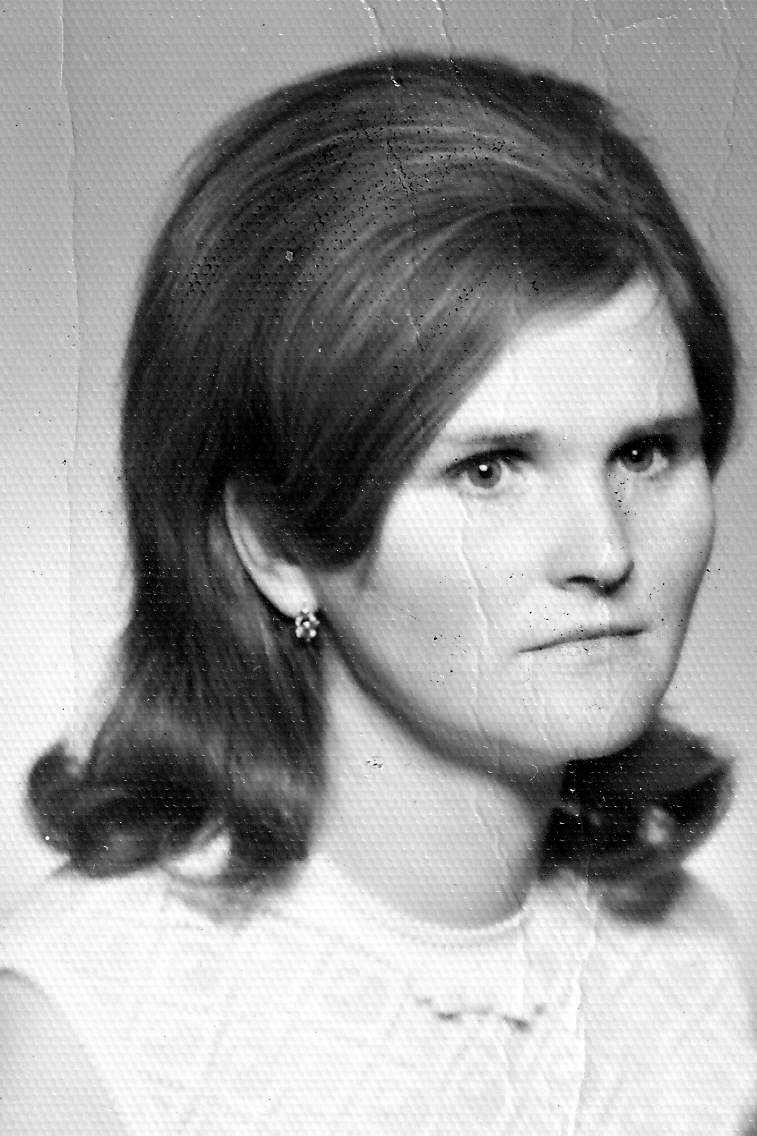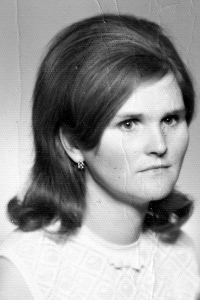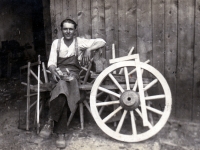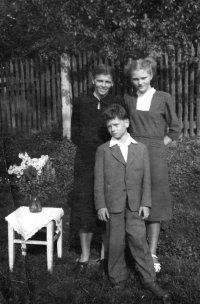I was hurt because of my dad and for a long time I couldn’t take even a word of German

Download image
Eliška Librová, formerly Ohřálová, was born on the 29 September 1940 in Kobeřice na Hlučínsku. After the Hlučín Region was annexed by the Third Reich, her father was forcibly conscripted into the Wehrmacht. He died in February 1945 during the bombing of a field hospital in the city of Görlitz. She experienced the front moving across Kobeřice with her mother, siblings and other relatives. They were forced to hide in cellars. Their bakery was occupied by Soviet troops. After February 1948 the Communists closed this bakery, which was inherited by the witness’s uncle from her grandfather. After school she started working at a hospital in Fifejdy v Ostravě, where sworn nuns of religious orders still worked into the mid 50s. They were later interned in Bílá Voda u Javorníka, where the witness visited them repeatedly. She later worked in the steelworks Nová huť Klementa Gottwalda in Ostrava. She married Karel Libra, with whom she had four children. Following this she worked in Kobeřice delivering mail until her retirement. She was very active in the Kobeřice Catholic parish. Among other things, she lead the choir there. She also went on unofficial Christian holidays with her husband. In 1985 she went on a pilgrimage to Velehrad. She signed a petition calling for religious freedom. She participated in the canonization of St. Agnes of Bohemia in Rome of November 1989. She still lived in Kobeřice in 2021.



















